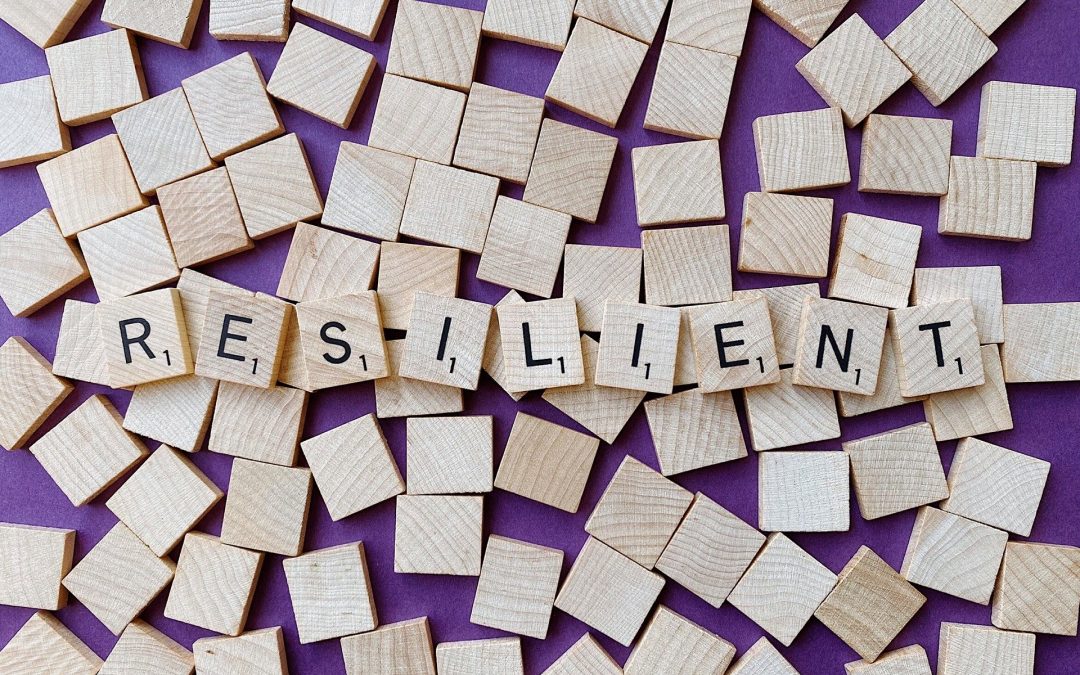You have likely seen the word ‘resilience’ mentioned almost as much as ‘unprecedented’ in recent months. Resilience is actually a very good term for a skill that people with axial SpA (AS) develop. It’s a word we use to describe the ability to cope through difficult circumstances, ‘bounce back’ from situations or simply keep going.
Naturally, the last year has demanded resilience and at times it can be difficult to maintain, particularly over such a long period of time. I want to bring together what we can learn from coping with the Covid-19 pandemic to relate to the skills we use to manage our axial SpA (AS) and manage the impact that it has on our lives.
Our natural resilience
Firstly, it’s important to recognise that this is a very stressful time and humans aren’t built to withstand chronic stress. As described in Anxiety UK’s video, humans cope well with short periods of stress and then periods of rest. To cope with stress long-term, we can increase our resilience through several different tools or strategies.
Same storm, different boats
Everyone with axial SpA (AS) is different, everyone’s condition is different and the circumstances we live in are different as well. This can be compared with how we experience the Covid-19 pandemic, with a quote from writer Damian Barr being particularly poignant “We are not all in the same boat. We are all in the same storm. Some of us are on super-yachts. Some have just the one oar.”. Disabled people and people at greater risk of Covid-19 have experienced this year differently to non-disabled people. We can recognise the unique challenges we face, while supporting ourselves and those around us.
Be kind to yourself
When talking about ‘resilience’, it’s easy to sound dismissive of the fact that coping with a long-term condition can be really hard. Self care is incredibly important and it’s essential to have a number of different techniques and tools that help you, because different things will help at different times. Ultimately, be kind to yourself.
Feeling worried or stressed
The first step to coping with worry, stress and negative feelings is to recognise and acknowledge them when they come up. These are completely natural emotions, but some practical tips to help manage them include:
- Have a list of people and organisations you can speak to if you need to.
- Keep a box of reminders of things you’re looking forward to and happier times in the past.
- Write your worries down, journaling.
- Take a look at our previous videos on emotional wellbeing.
What’s within your control?
Spend some time thinking about things that tend to cause you stress or overwhelm, that you’re able to influence. Write a list and then next to each thing, write all the things you can do to reduce the impact.
For example, frequently watching the news can make us feel more stressed and worried. While we need to be informed, we can limit how long we spend looking at the news and also change when we look. Instead of checking news and social media first thing in the morning, check it in your lunch break or later in the day. Try this for a week and see how it makes you feel.
What’s out of your control?
If anything comes up in your mind that you have absolutely no control over, write that on a separate list. On this list, in the second column you write all the things you can do to distract yourself if you’re feeling stressed or worried about things you can’t control. This could include:
- Hobbies, crafts, knitting etc.
- Listening to music.
- Reading, writing.
- Speaking to loved ones.
- TV, movies etc.
- Exercise, yoga, going for a walk.
- Breathing exercises, meditation.
Coping with uncertainty
Make it easier to cope with uncertainty with creative ways to look forward, but don’t put pressure on yourself to set a date for plans:
- Make a joy jar (as described in our previous video)
- Create a vision board of things you’re looking forward to.
- Talk to people regularly.
Social media holiday
If you find social media gets you down, take a regular ‘social media holiday’ to reduce overwhelm.
Communicate
Speaking to loved ones about how you’re feeling can help build you up. Even if someone can’t give you practical help, the emotional support will help you feel stronger. You may also be able to talk to colleagues, carers, professionals or charities. Look for local or online support groups, including NASS Branches. For a listening ear, the Samaritans are always there.
Remember how strong you are
Repeating the lyric “it’s always darkest just before the dawn” to myself helps me through nights when an axial SpA (AS) flare is keeping me awake. It may sound cheesy, but reminding yourself of how strong you are when you’re feeling at your weakest is incredibly powerful. We are a resilient bunch and it’s worth remembering that.
Zoë Clark is our Self Management Programme Officer. You may have seen her blog posts previously written for NASS and she spoke at the latest parliamentary meeting in January and appeared on Channel 5 News.
Zoë is available on the Helpline, so if you’d like to have a chat then please get in touch and we can arrange a call. She’ll also be sharing some of her top tips and answering any common questions, so please let us know in the comments if there’s any particular advice you’d like.
The Helpline is open 1000-1600 Monday to Friday on 020 8741 1515 or you can email zoe@nass.co.uk



